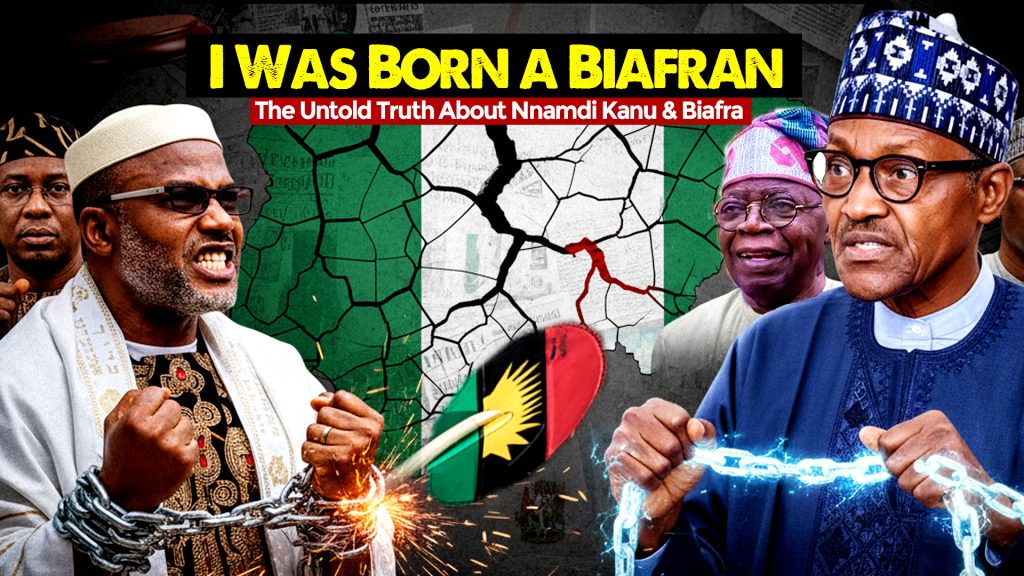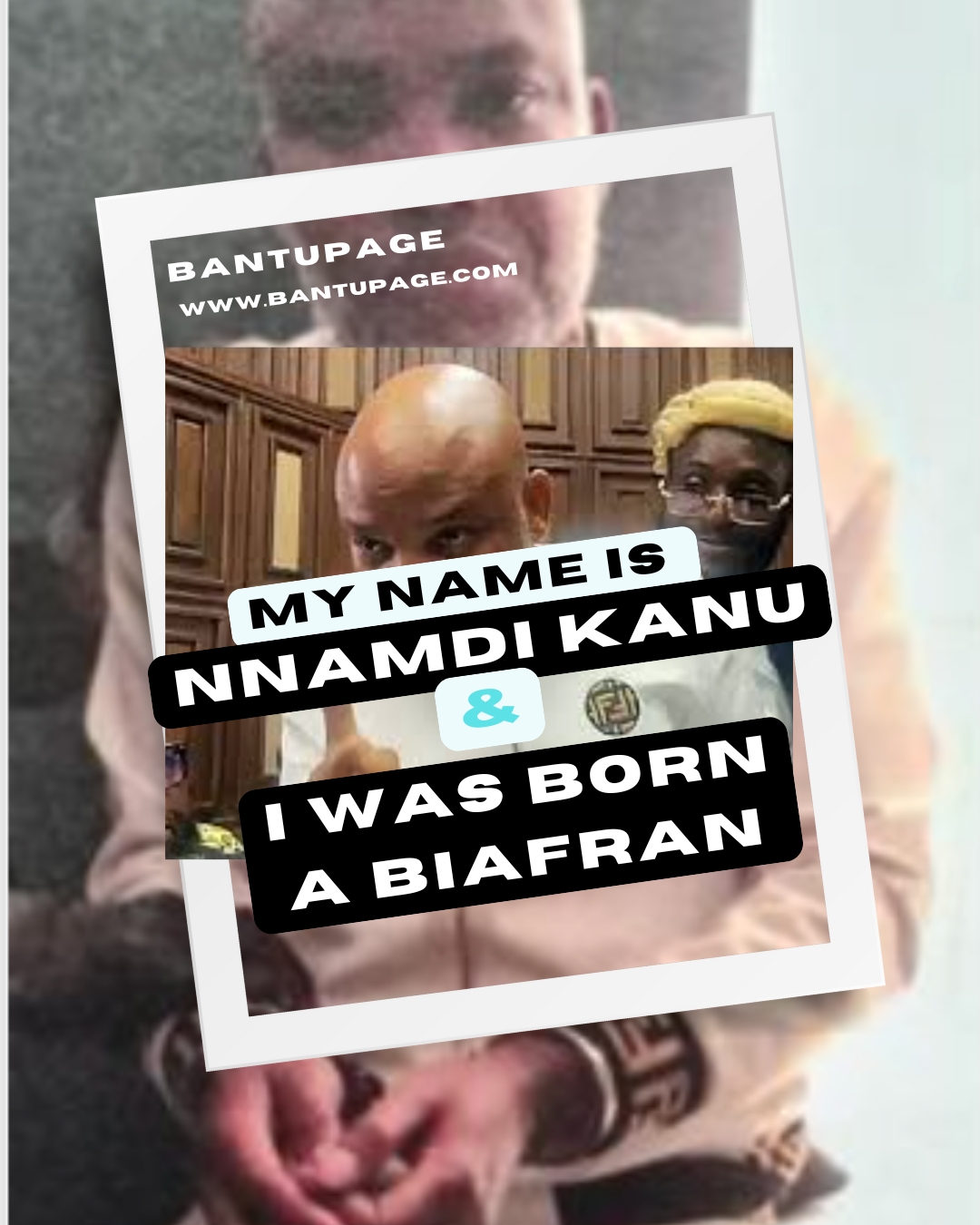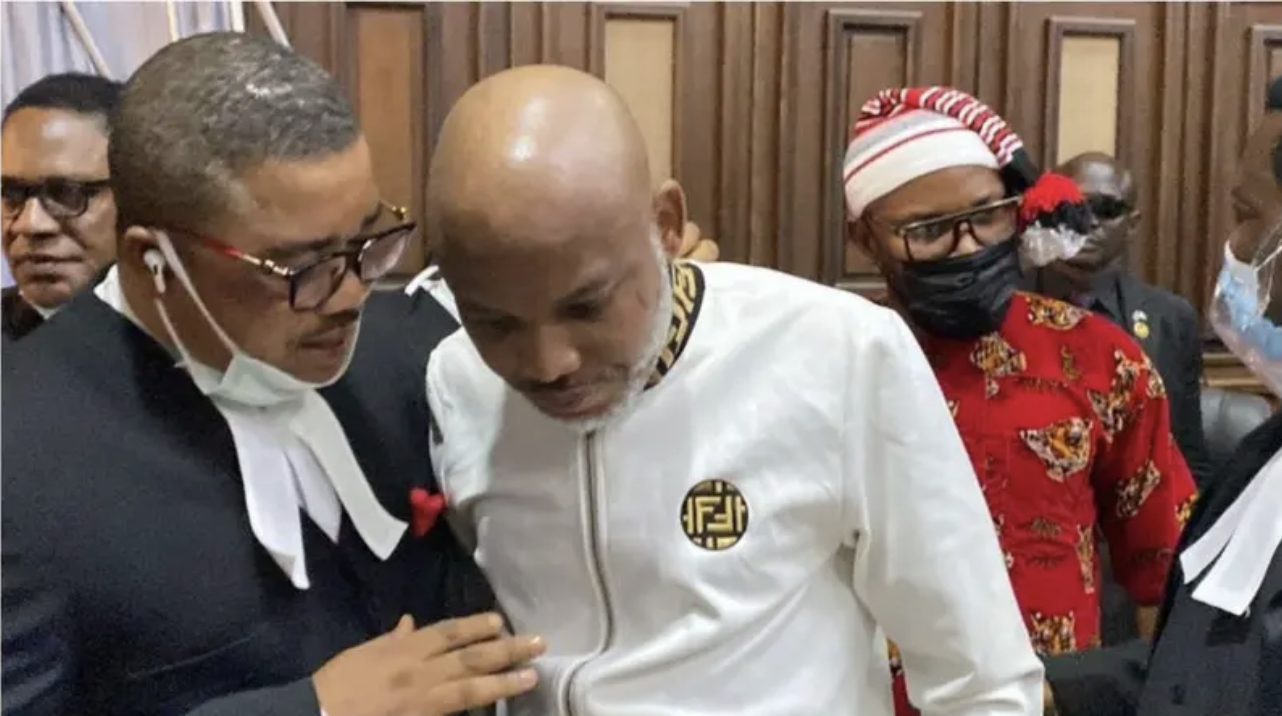
Biafra, Nnamdi Kanu, and the Case for His Release
Who is Nnamdi Kanu?
Kanu was born in Biafra. He was forced into the Nigerian federation after his birth country, Biafra, lost the war for independence against Nigeria. He later moved to the United Kingdom, where he acquired British citizenship. He was a vocal critic of the Nigerian state and the alleged marginalisation of the Igbo people in Nigeria. Biafra was not an Igbo nation; instead, it was a conglomeration of Igbo and non-Igbo ethnicities that constituted the defunct Eastern region of Nigeria.
What is Biafra?
Biafra was a bight just off the west-central African coast, which encompasses far-reaching regions including eastern Nigeria, Cameroon, Equatorial Guinea, and northern Gabon.
On 30 May 1967, Lieutenant Colonel Odumegwu Ojukwu declared the independence of Biafra, seceding from the former Eastern Region of Nigeria after negotiations failed or were breached by the then-military dictator of Nigeria, Yakubu Gowon. In retaliation, on 6 July 1967, Gowon’s military dictatorship declared war on Biafra. Supported and backed by most of the world, spearheaded by Britain, Biafra was blocked from all ends.
After three years of bloodshed and starvation, Biafra succumbed on 15 January 1970. Lieutenant Colonel Odumegwu Ojukwu fled to the Ivory Coast (Côte d’Ivoire), then under the late Félix Houphouët-Boigny.
The Biafran War:
Over three million people died during the Biafran War, primarily due to starvation. By the end, over 20% of the Biafran population had died. The world largely ignored the barbaric nature of the war, in which Nigerian soldiers fought against an innocent population whose only fault was desiring their own nation. The war had one of the highest casualty rates of the 20th century.
Kanu’s Biafra Agitation:
For years, he has been running a radio station called Radio Biafra, where he promoted the idea of the return to the Biafran nation for the many ethnicities that constitute the South-South and Southeastern geopolitical zones of present-day Nigeria. On 14 October 2015, he was arrested at a hotel in Lagos at the orders of former Nigerian president Muhammadu Buhari, who himself was a veteran of the Biafra War. Buhari’s loathing for Biafra and the Igbo was sometimes glaring.
Kanu was granted bail on 28 April 2017, with some stringent conditions which he breached as soon as he was released. Then Buhari ordered the military to storm his residence and rearrest him. Mr Kanu escaped, but there were some casualties. Then, in October 2018, Mr. Kanu resurfaced in Israel and subsequently returned to the United Kingdom, where he ran Radio Biafra and YouTube, demonising and insulting Buhari and most Igbo politicians. He is undiplomatic and impolite. His words can, at times, be bullish, braggadocious, and swaggering.
On 27 June 2021, Mr Kanu was kidnapped by paid contractors in Kenya. He was subsequently smuggled out of Kenya into Nigeria after being tortured, as he claimed. He has been held in solitary confinement since 2021, until his recent trial in the High Court in Abuja. Under the new president, Bola Tinubu, it was expected that Mr Kanu’s legal battle would have yielded an outcome, particularly given that Mr Tinubu isn’t a firm believer in one Nigeria either. He has voiced his opposition to the idea in the past. However, he has ignored calls to pardon Mr Kanu; instead, he pardoned murderers, terrorists, and drug dealers.
 Kanu’s Extraordinary Rendition from Kenya
Kanu’s Extraordinary Rendition from Kenya
IPOB (The Indigenous People of Biafra) has engaged in violence that has resulted in the deaths of Nigerian security personnel. Its armed wing, the ESN (The Eastern Security Network), was even more violent, attacking and setting fire to many police stations and also involved in some killings, though unclear.
As Mr Kanu’s trial continues in Abuja, he has fired all his legal team, preferring to defend himself. Whether his rhetoric, showboating, and braggadociousness would save him from the learned judges this time, no one knows. However, should the trial proceed, Mr Kanu stands little chance of emerging victorious, given the weight of the charges and the evidence against him.
 Mr Kanu in the High Court in Abuja with his former Lawyer
Mr Kanu in the High Court in Abuja with his former Lawyer
Should He Be Released or Pardoned?
There are several legal, human rights, and political arguments made for why Nnamdi Kanu, the leader of the Indigenous People of Biafra (IPOB), should be released. Here are some valid and balanced reasons often cited:
- Compliance with Court Orders
Multiple Nigerian courts, including the Court of Appeal in October 2022, have ruled that Nnamdi Kanu’s extraordinary rendition from Kenya to Nigeria was unlawful and that he should be released. Continuing to detain him despite these rulings undermines the rule of law and the independence of the judiciary in Nigeria. Upholding court judgments would demonstrate that Nigeria respects its own legal system and constitutional framework.
- Violation of International Law
His arrest and transfer from Kenya to Nigeria have been described as violations of international human rights norms and the principle of non-refoulement (the prohibition on the illegal transfer of a person without due process). The United Nations Working Group on Arbitrary Detention (UNWGAD), in its 2022 opinion, called for Kanu’s immediate release and compensation for unlawful detention. Respecting these international findings would improve Nigeria’s global human rights image.
- Health and Humanitarian Grounds
Reports indicate that Nnamdi Kanu has serious health issues that have worsened during his detention. Humanitarian principles and Nigeria’s obligations under the African Charter on Human and Peoples’ Rights support granting release, bail, or medical parole to ensure his well-being.
- Political Dialogue and Peacebuilding
Kanu’s continued detention has fuelled unrest and security challenges in parts of the South-East. Releasing him could serve as a gesture of reconciliation, paving the way for peaceful dialogue between the Nigerian government and aggrieved groups. Similar political solutions have been employed in Nigeria’s past conflicts (e.g., the Niger Delta amnesty) to achieve lasting peace.
- 5. Right to a Fair Trial
There are credible concerns that Kanu has not been given a fair and speedy trial, as required by Nigeria’s Constitution. Prolonged detention without the conclusion of a trial contravenes Section 36 of the 1999 Constitution (right to a fair hearing) and Article 7 of the African Charter.
- National Unity and Reconciliation
His release could help ease ethnic tensions and demonstrate that the government values inclusive dialogue over coercive measures. A peaceful, political approach is more likely to strengthen national unity than prolonged confrontation.
- Precedent for Justice and Good Governance
Respecting human rights and judicial orders in politically sensitive cases sets a positive precedent for justice, democracy, and effective governance in Nigeria. It signals that no one is above the law, including the state, and that dissent can be managed democratically.
You can watch the excerpt about Mazi Nnamdi Kanu here: https://www.youtube.com/watch?v=gpvfuhWjaXA
By Ikechukwu ORJI





